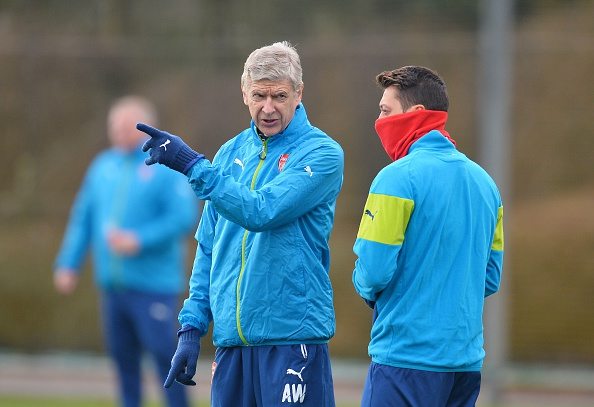German fans have a strange relationship with Mesut Özil, often criticized when he is present and missed when he is absent. There is no one quite like him, and that is what makes him so important.

Unlike Per Mertesacker, Mesut Özil is not always willing to talk with the media after matches. Fans have not watched him grow up and grown to love his charismatic personality like Lukas Podolski. The distance he has kept has made him all the easier to deride in the pubs and in the papers
Some fans were angry he did not sing the national anthem before World Cup matches. More recently, a free TV showing of the documentary “Die Mannschaft“ – following Germany’s team on their triumphant World Cup campaign – inadvertently helped to bring to light Özil’s decision to wear Adidas socks, and not official DFB ones worn by his teammates, during the final against Argentina.
Germany fans often mention some of the same on-pitch critiques of Özil voiced by Arsenal supporters – he drifts out of games, his finishing is poor, he does not defend, he is inconsistent. That was especially true during the World Cup, when calls for his replacement were loudest.

Following Germany’s narrow win over Algeria in the Round of 16, Bild newspaper described his performance as “gutless in challenges, clueless in attack. A huge disappointment so far at the World Cup.” Kicker, Germany’s leading football magazine, ranked him as the country’s 13th-best World Cup player, awarding him a 3.43 rating for the entire tournament, with five being the worst. Özil’s Arsenal teammate Mertesacker, in contrast, was sixth with a 2.8 rating.
To make matters worse, the player many fans viewed (incorrectly) as the logical replacement for Özil – Andre Schürrle – played fantastically. He scored off the bench three times in the knockout stage.
But in truth none of that really mattered, and most German fans knew it. Joachim Löw is often viewed as coach who has favourites and Özil is one of them. It is why Podolski has 121 caps, why Miroslav Klose was continuously picked despite frequent injuries, old age and Bayer Leverkusen’s high-scoring Stefan Kiessling waiting to replace him.
Löw is usually right about decisions that, on the surface, seem like head scratchers. Klose scored the tying goal against Ghana. Podolski was a hugely important locker room presence.
Özil is no different. He fills the creator role in a way that other German players, including Toni Kroos, cannot. Even in that highly criticized match against Algeria, he scored Germany’s first goal in their 2-1 win and was involved in nearly every one of his side’s scoring opportunities.
Özil’s latest stint out injured served as a good reminder to Germany fans just how important he can be. Without him in the squad last October, Germany lost 2-0 to Poland, their first qualifying defeat since 2007. Three days later, they were held to a 1-1 draw at home by Ireland.
Özil’s return from injury against Stoke City on January 11 was therefore warmly welcomed in the German press. Fans in Germany have gotten used to winning and that is far harder to do without the Arsenal man.

